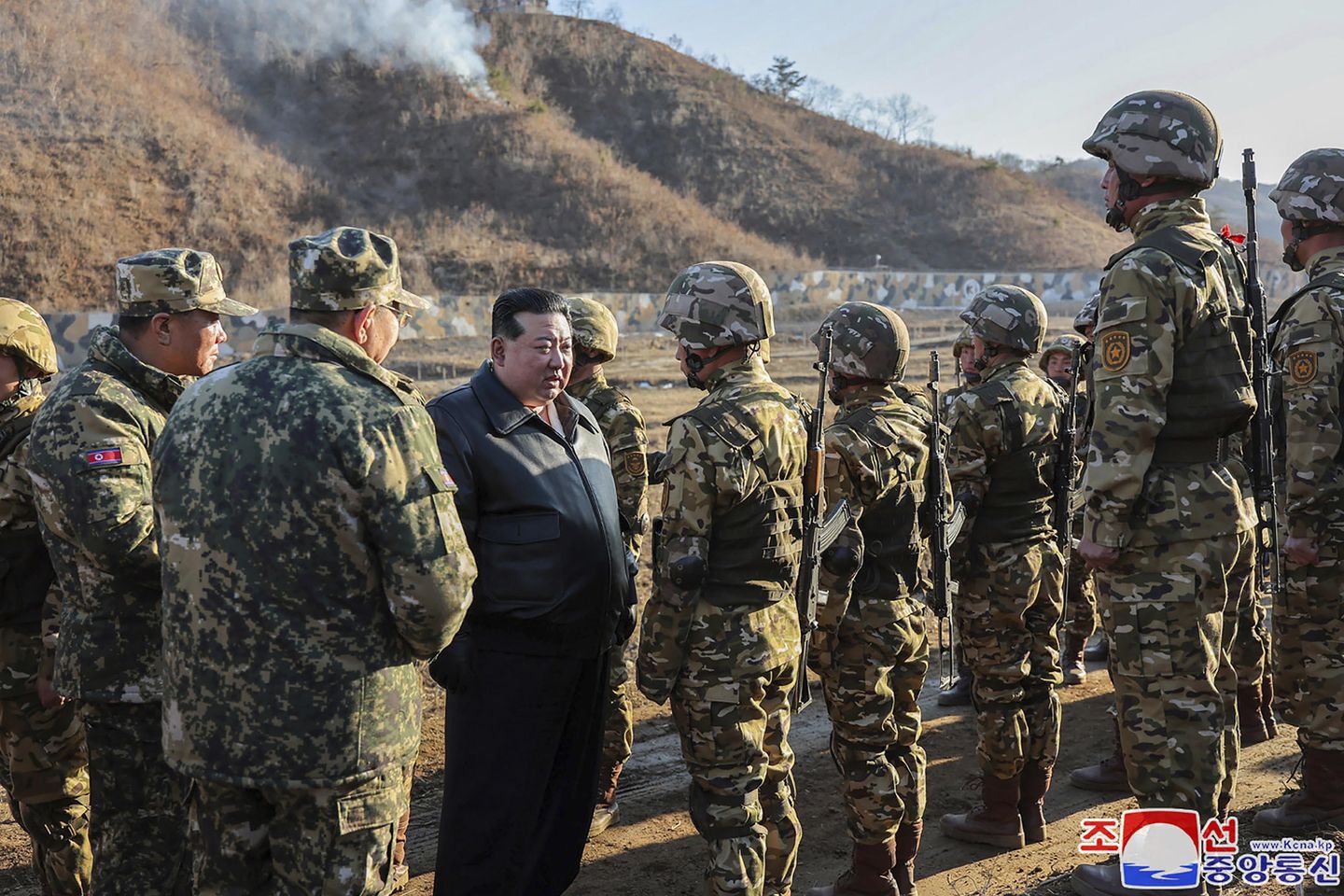North Korean troops sent to join Russia’s war against neighboring Ukraine have likely sustained significant combat casualties while achieving little on the battlefield, British intelligence officials said Wednesday.
The troops were reportedly deployed to Ukraine as part of a larger force supporting Russia’s invasion of the country. The North Korean soldiers were said to have been sent to reinforce Russian positions and assist in combat operations.
According to British intelligence sources, the North Korean troops have faced heavy resistance from Ukrainian forces and have suffered significant casualties as a result. It is believed that many of the North Korean soldiers sent to Ukraine were ill-prepared for the realities of modern warfare and lacked the necessary training and equipment to effectively engage in combat.
The presence of North Korean troops in Ukraine has raised concerns among Western officials, who fear that their involvement in the conflict could further escalate tensions in the region. North Korea is known for its aggressive and unpredictable behavior, and the deployment of its troops to Ukraine is seen as a troubling development.
The decision to send North Korean troops to Ukraine is believed to have been made by North Korean leader Kim Jong Un, who has a close relationship with Russian President Vladimir Putin. The two leaders have a history of cooperating on military and strategic issues, and it is likely that Kim Jong Un agreed to send troops to Ukraine in order to support Russia’s efforts in the conflict.
Despite the significant casualties suffered by the North Korean troops, it is unclear what impact their presence has had on the overall situation in Ukraine. The conflict in Ukraine has been ongoing for several weeks, with Russian forces making steady progress in their advance into the country. However, Ukrainian forces have put up a fierce resistance, and the situation remains fluid and unpredictable.
The involvement of North Korean troops in the conflict has added another layer of complexity to an already volatile situation. The presence of foreign troops in Ukraine has raised concerns about the potential for a wider regional conflict, as well as the possibility of a direct confrontation between Russia and Western powers.
The deployment of North Korean troops to Ukraine is just the latest example of the secretive regime’s willingness to engage in provocative and destabilizing behavior on the world stage. North Korea has a long history of engaging in aggressive actions, including nuclear tests, missile launches, and hostile rhetoric towards its neighbors and the international community.
The decision to send troops to Ukraine is likely motivated by a desire to strengthen North Korea’s ties with Russia and demonstrate its willingness to support its allies in times of crisis. However, the move has also raised questions about the regime’s intentions and its willingness to engage in risky and dangerous behavior.
The situation in Ukraine remains fluid and unpredictable, with no clear end in sight to the conflict. The presence of North Korean troops in the country has added another layer of complexity to an already volatile situation, and there are concerns about the potential for further escalation and violence in the coming days and weeks.
As the conflict in Ukraine continues to unfold, the international community is closely monitoring the situation and working to find a peaceful resolution to the crisis. The involvement of North Korean troops in the conflict has raised concerns about the potential for a wider regional conflict and the impact it could have on global security and stability.
In the meantime, the North Korean troops in Ukraine continue to face heavy resistance from Ukrainian forces and are likely to sustain further casualties as the conflict intensifies. The situation remains fluid and unpredictable, with no clear end in sight to the conflict and the potential for further violence and instability in the region.









